Filter by
Showing 73-84 of 755 Results
Page
Human Rights on Capitol Hill – March 2022 Newsletter
HUMAN RIGHTS ON CAPITOL HILL Table of Contents Featured International Updates Domestic Updates Amnesty Updates march 2022 NEWSLETTER [readmore_expand] This month’s edition of Human Rights on Capitol Hill focuses on Russia’s invasion…
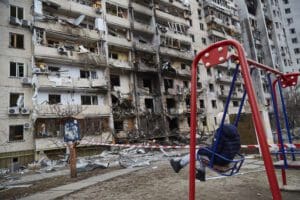
Press Release
Reconstruction reveals how Colombian security forces intentionally attacked peaceful protesters in Cali on May 3
An event reconstruction by SITU Research and Amnesty International details how Colombian security forces assaulted peaceful protesters in the Siloé neighborhood of the city of Cali on May 3. In…
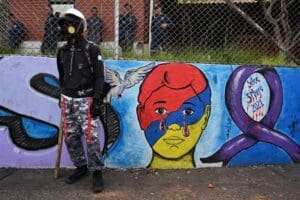
Page
Human Rights on Capitol Hill – February 2022 Newsletter
HUMAN RIGHTS ON CAPITOL HILL Table of Contents Update on Ukraine Featured International Updates february 2022 NEWSLETTER UPDATE ON UKRAINE [readmore_expand] As the Russian government continues to amass troops on…
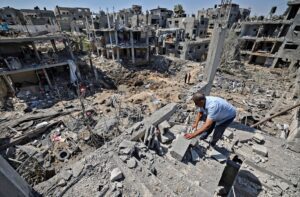
Page
Amnesty International’s 2023 Annual General Meeting
Location: San Diego Omni Hotel and virtually via Whova Dates: March 3rd – 5th Amnesty International USA is excited to be hosting our hybrid Annual General Meeting 2023 (AGM’23) in…

Update
Amnesty International USA statement for the record for Feb. 1 Senate Committee on Foreign Relations hearing on ‘Sudan’s Imperiled Transition’
On January 24th, 2022, Amnesty International USA's National Director for Advocacy and Government Relations Joanne Lin and Almami Cyllah Fellow Makeda Fikremariam submitted the following statement for the record to…
Update
Amnesty International Statement for the Record on Sudan following October 25 Coup and Need for U.S Action – Tom Lantos Human Rights Commission Hearing
On January 24th, 2022, Amnesty International USA's National Director for Advocacy and Government Relations Joanne Lin and Almami Cyllah Fellow Makeda Fikremariam submitted the following statement for the record to…
Page
Human Rights on Capitol Hill – January 2022 Newsletter
HUMAN RIGHTS ON CAPITOL HILL Table of Contents Featured Domestic Updates International Updates JANUARY 2022 NEWSLETTER Featured: War Crimes and Civilian Harm in Afghanistan People walk past the ruins of…
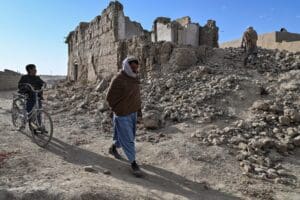
Press Release
New wave of atrocities in Ethiopia’s Western Tigray
Amhara security forces are responsible for a surge of mass detentions, killings and forced expulsions of ethnic Tigrayans in the Western Tigray territory of northern Ethiopia, Amnesty International and Human…
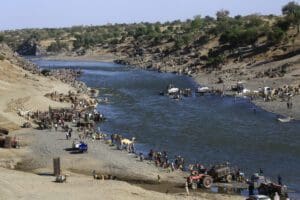
Page
Human Rights on Capitol Hill – December 2021 Newsletter
HUMAN RIGHTS ON CAPITOL HILL Table of Contents Featured Human Rights Day What’s Coming Down the Pike Welcome News DECEMBER 2021 NEWSLETTER Featured: Tigray and Ethiopia: One Year After the…
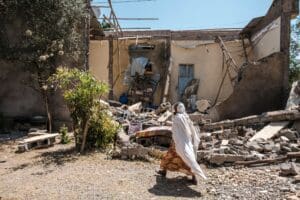
Press Release
Survivors Describe Killings, Mass Displacement and Terror Amid Fighting in Western Equatoria, South Sudan
Dozens of civilians in South Sudan were killed and tens of thousands displaced amid fighting between armed groups in Western Equatoria state from June to October this year, Amnesty International…
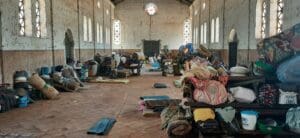
Press Release
Amnesty International USA Condemns Racist Vigilantism and White Supremacy in the US Criminal Justice System
In response to today’s not guilty verdict in the Kyle Rittenhouse trial, Paul O’Brien, executive director of Amnesty International USA, said: “Today, Kyle Rittenhouse walks free after arming himself, shooting,…
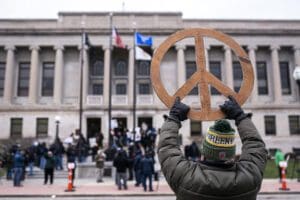
Update
Vote Recommendation: Amnesty International USA Recommends a YES Vote on the Build Back Better Act and Supports Funding for Community Violence Intervention Programs
On November 18, 2021, Amnesty International USA wrote to members of the House of Representatives to urge them to vote YES on H.R. 5376, Build Back Better Act. The bill…

